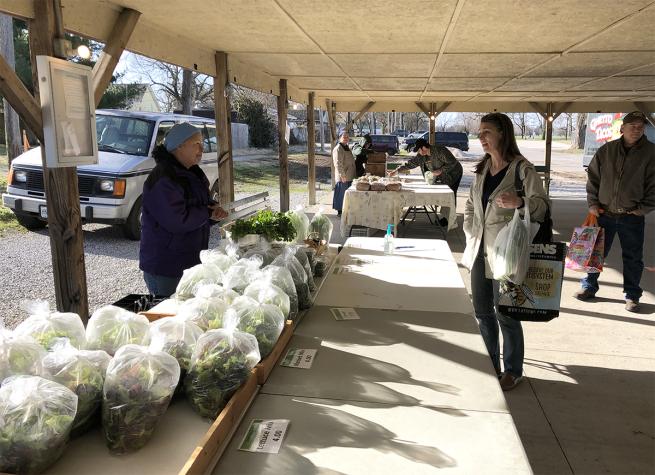KANSAS CITY, Mo. – Many consumers have had to revamp their grocery shopping routines these last months. Supply chain issues have disrupted some farm operations, leading to unpredictable store shortages at the same time that some consumers have been looking for alternatives to crowded supermarkets.
Circumstances have created an opportune time for farmers to promote and consumers to discover the value of local food. This increased interest and opportunity may endure beyond COVID-19-related issues, said Lorin Fahrmeier, University of Missouri Extension’s Farm to Institution project coordinator.
The Missouri Food Finder — an online resource that Fahrmeier helped develop with the MU Center for Applied Research and Engagement Systems (CARES) — makes it a snap for consumers and growers to connect. (Note: Since initial publication of this news release the site has been renamed Show Me Food and can be found at ShowMeFood.org.)
Farmers, growers, and local suppliers — including food pantries and farmers markets — can enter basic information about the food they sell, as well as location, hours and contact information. The information populates a searchable Missouri map that helps customers home in on sellers near them.
MU Extension verifies that the entries meet criteria for accuracy and appropriateness.
Londa Nwadike, extension consumer food safety specialist for MU and Kansas State University, advises keeping these key points in mind when buying direct from producers:
• Visit with producers and ask them about their production and handling processes. Ask if they have the applicable licenses or any voluntary certifications or trainings in food safety.
• Ensure that any cut or peeled produce, and any meats, eggs, cheeses and milk have all been kept under refrigeration.
• It is recommended that all milk is pasteurized for safety. This Food and Drug Administration resource has factual information on raw milk product consumption.
• Food should be processed, handled and stored in a sanitary manner.
• After harvest, produce should not be stored directly on the ground.
• Packaging should look clean.
For their part, farmers and producers should always follow all food safety best practices and applicable regulations. Throughout the year, MU Extension provides food safety training for produce growers and some for value-added producers.
These publications provide basic tips and information that apply to direct-to-consumer products:
